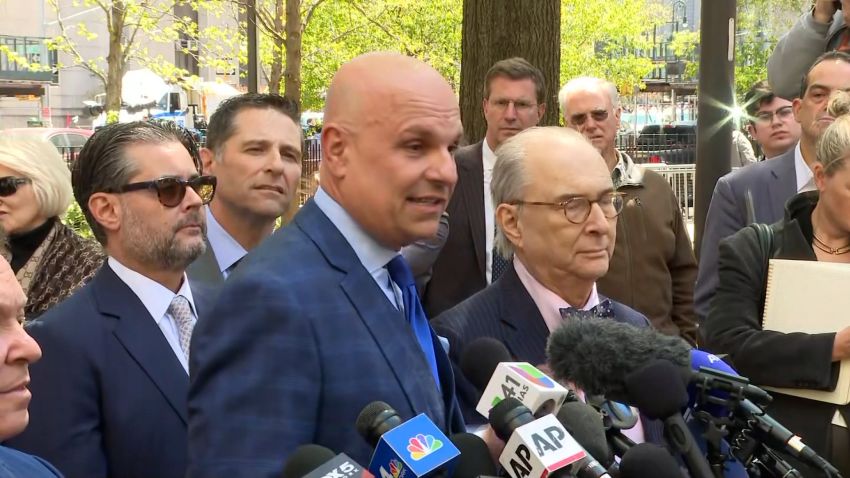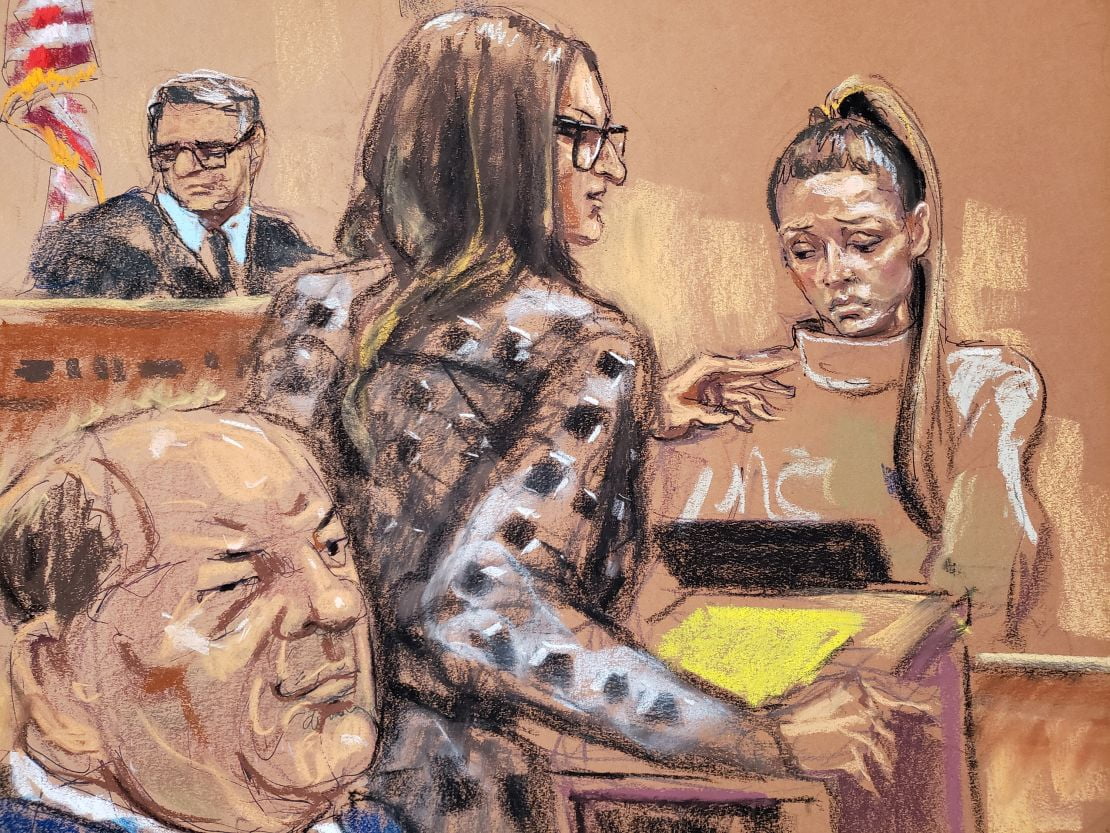
In Short
- Harvey weinstein’s sex crimes conviction has been reversed.
- The decision has legal implications for the #metoo movement.
- The case reflects broader debates on evidence and due process in sexual assault trials.
TFD – Delve into the reversal of Harvey Weinstein’s sex crimes conviction and its impact on the #MeToo movement.
Harvey Weinstein was a famous Hollywood producer whose downfall served as a symbol of the #MeToo movement. On Thursday, the New York Court of Appeals reversed his sex crimes conviction and ordered a new trial.
By a decision of 4–3, the court decided that the testimony of witnesses who had committed “prior bad acts” should not have been permitted because it “served only to establish defendant’s propensity to commit the crimes charged and was unnecessary to establish defendant’s intent.”
In 2020, Weinstein, 72, was found guilty of first-degree criminal sexual conduct and third-degree rape. He was given a 23-year jail sentence. He has steadfastly upheld his innocence and denied engaging in any kind of unconsented intercourse.
The case will be retried, according to the Manhattan District Attorney’s Office.
Emily Tuttle, the office’s senior adviser and deputy director of communications, declared, “We will do everything in our power to retry this case, and remain steadfast in our commitment to survivors of sexual assault.
Online records and his counsel both state that Weinstein has been moved from the Mohawk Correctional Facility in Rome, New York, to the Bellevue Hospital Prison Ward.
According to TFD on Saturday, Weinstein’s lawyer Arthur L. Aidala stated, “He is in Bellevue for medical reasons.”
CNN is informed by Aidala Weinstein’s trial is scheduled to recommence on Wednesday at Manhattan Supreme Court, with a new judge and prosecutor.
Given that he was given a 16-year prison sentence in Los Angeles last year for rape and sexual assault, it is doubtful that he will be released. Similar “prior bad acts” witnesses were utilized in that trial, which has also been challenged.
The decision on Thursday was made more than six years after reports in 2017 from The New York Times and The New Yorker exposed Weinstein’s purported history of sexual abuse, harassment, and payments made in secret while he exploited young women by using his position of power in Hollywood.
Weinstein was one of Hollywood’s most powerful individuals at the time, contributing to the creation of films like Shakespeare in Love, Pulp Fiction, and Clerks. Following the disclosures, a number of women spoke out about the widespread nature of sexual abuse and harassment in public, sparking the #MeToo movement.
However, the legal impact of #MeToo has been uneven, with this being the second well-known case to be rejected on appeal. A Pennsylvania appeals court reversed the comedian Bill Cosby’s conviction in 2021, claiming that his due process rights had been infringed upon. Cosby had been found guilty in 2018 of drugging and sexually abusing a woman.
Weinstein expresses gratitude. lawyer states
The decision to reverse Weinstein’s conviction elicited a variety of responses from people associated with the case.
Aidala stated that Weinstein was “very gracious” and “very grateful” after receiving the news, and he “heaped praise” on his legal team.
Aidala remarked, “The witnesses were there only to make Harvey Weinstein look bad.” That is the only explanation for the witnesses’ admission. to demonstrate his evil nature. Instead of the evidence, his character was used to try him.
Donna Rotunno, the primary defense lawyer during Weinstein’s trial in New York, declared, “Justice was served.” “This choice, in my opinion, goes beyond Harvey Weinstein. Courts cannot function just on sentiment and incomplete due process. Nothing happens when the judicial system is broken, and the world is out of balance. This choice helps people have faith again in the basis of our system.
Weinstein’s spokeswoman Juda Engelmayer stated, “We are cautiously excited and need to study the ramifications of the appeal decision.” “This was an unfair trial, as we always said.”
Cyrus Vance Jr., a former Manhattan district attorney who initially filed the charges against Weinstein, expressed his disbelief at the outcome.
“I am deeply grateful to and humbled by the survivors who came forward in the brightest glare of a public courtroom to tell their stories at great personal cost and trauma,” Vance said in a statement. “The judicial system, in my opinion, has let them down today and did not advance justice. “
One of the witnesses for Weinstein’s “prior bad acts,” Dawn Dunning, stated in a statement that she did not regret testifying and that the district attorney’s office should retry the case.
I am still proud that I testified and confronted that convicted rapist, even though I’m shocked that the court overturned Weinstein’s conviction on procedural grounds,” she remarked. I came forward to make sure Weinstein would be held accountable and to support other women who were also sexually abused by him.
In a possible retrial, Miriam “Mimi” Haley, whose testimony formed the basis of the first-degree criminal sexual act conviction, “would consider testifying again,” according to a statement from her lawyer Gloria Allred.
She said, “Mimi reaffirmed to me today that she would consider testifying again if (Manhattan) District Attorney Alvin Bragg decided to proceed with a new trial of Harvey Weinstein, even though the process of testifying was grueling and retraumatizing for her.” “Mimi deserves praise for her bravery and persistence in defending the truth.”
The choice was also challenged by Douglas H. Wigdor, a lawyer who has defended eight of Weinstein’s victims, including two of the witnesses from his New York criminal prosecution who discussed his “prior bad acts.”
In a statement, he said, “Today’s decision is a major step back in holding those accountable for acts of sexual violence.” “When evidence of previous uncharged conduct helps juries grasp questions about the defendant’s intent, strategy, or mode of operation, courts frequently include such evidence. The jury was given instructions regarding the significance of this testimony, and it would be awful to reverse the decision because it would mean the victims would have to go through a second trial.
What transpired during his trial in New York

Haley and Jessica Mann’s testimony served as the foundation for the New York allegations. Mann claimed that Weinstein raped her in 2013 during what she described as an abusive relationship, and Haley said that he forced her to have oral sex with him in his Manhattan apartment in 2006.
Prosecutors also called three other women as “prior bad acts” witnesses during the trial in an attempt to establish Weinstein’s abuse history. These three women—Dunning, Tarale Wulff, and Lauren Young—all said that when they were young and aspiring to become film industry professionals, Weinstein took advantage of them through his Hollywood connections.
Following Weinstein’s conviction in his New York trial, his legal team filed an appeal of the decision. They said that the judge ought to have disallowed the testimony of these witnesses with “prior bad acts” and denied the prosecution the opportunity to cross-examine Weinstein regarding incidents of bullying and verbal abuse. (In the end, Weinstein chose not to testify in the case.)
On those matters, the Court of Appeals concurred with the defense.
Judge Jenny Rivera wrote the ruling, which says, “We conclude that the trial court erroneously admitted testimony of uncharged, alleged prior sexual acts against persons other than the complainants of the underlying crimes because that testimony served no material non-propensity purpose.”
The court made that mistake worse by ruling that the defendant, who had no criminal record, might be cross-examined regarding those accusations and many misconduct claims that painted the defendant in a very negative light. These mistakes did not have a benign synergistic impact.
The majority ruling, however, “perpetuates outdated notions of sexual violence and allows predators to escape accountability,” Judge Madeline Singas said in a biting dissent.
“This conclusion shows the majority’s complete ignorance of the dynamics of sexual assault, denies juries the context they need to do their job, prohibits the prosecution from using a crucial tool to establish intent, and ignores the subtleties of how sexual violence is perceived and committed,” Singas wrote. “I disagree because New York’s women deserve better.”
With the growth of the #MeToo movement in recent years, the use of witnesses with “prior bad acts” has expanded. Their testimony can transform a challenging “he said, she said” case in sexual assault cases into a more compelling “he said, they said” case.
Evidence indicating the defendant has a bad reputation or has committed crimes in the past is typically excluded from court proceedings. It is feared that these earlier instances will have an undue influence on the jury, causing them to overlook the genuine proof of the claimed crime.
An exception to this is evidence of “prior bad acts.” Federal evidence standards provide that it can be used to establish the defendant’s “motive, opportunity, intent, preparation, plan, knowledge, identity, absence of mistake, or lack of accident.”
In attempting to strike a balance between the significance of the testimony and the potential to influence the jury, judges are granted a considerable amount of latitude in determining what can and cannot be admitted into evidence.
Further details have been added to this story.
Conclusion
The reversal of Harvey Weinstein’s conviction highlights ongoing legal debates and the evolving landscape of sexual assault trials.
Connect with us for the Latest, Current, and Breaking News news updates and videos from thefoxdaily.com. The most recent news in the United States, around the world , in business, opinion, technology, politics, and sports, follow Thefoxdaily on X, Facebook, and Instagram .
